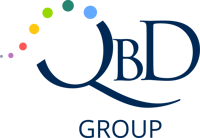Balancing efficiency, cost, and compliance is a growing challenge for organizations—particularly in highly regulated industries like pharmaceuticals and medical devices. As a result, many are exploring outsourced Quality Assurance (QA) as a strategic solution. This approach helps streamline operations, reduce internal workload, and tap into specialized global expertise. As competition intensifies, the need for flexible, cost-effective, and expert-driven QA services continues to grow.
However, outsourcing QA is not without its challenges. From communication hurdles to data security concerns, companies must assess how outsourcing aligns with their long-term goals, regulatory obligations, and operational capabilities. This article explores the main reasons for outsourcing QA, its short- and long-term impact, associated risks, and key considerations when selecting and managing the right QA partner.
Why companies choose to outsource QA
Organizations often outsource QA for several strategic reasons:
- Cost efficiency: Outsourcing reduces the financial burden of hiring, training, and maintaining an in-house QA team. It also limits infrastructure costs related to test environments and tools.
- Access to expertise: External partners often bring deep, domain-specific knowledge, especially valuable in regulated industries requiring familiarity with standards such as GAMP 5 or ISO 13485.
- Scalability and flexibility: QA needs can fluctuate across development phases. Outsourced teams provide the agility to scale up or down as needed.
- Enhanced focus on core activities: Delegating QA responsibilities allows internal teams to concentrate on innovation, development, and strategic priorities.
Short-term benefits of outsourced QA
When companies engage external QA partners, several immediate advantages are typically observed:
- Accelerated execution: With geographically distributed teams, round-the-clock testing and quicker turnaround times become achievable.
- Comprehensive coverage: Outsourced QA teams often use advanced frameworks and automation tools to increase the depth and efficiency of testing.
- Reduced internal workload: In-house QA professionals can focus on high-impact tasks while routine testing is handled externally.
Risks and challenges of outsourced QA
Despite its many advantages, outsourced QA comes with inherent risks that must be carefully managed:
- Communication and coordination challenges: Time zone differences, cultural nuances, and language barriers can hinder smooth collaboration and delay progress.
- Data security concerns: Sharing sensitive product or user data with third-party vendors increases the risk of data breaches or non-compliance with industry regulations.
- Quality control variability: Ensuring that external teams meet internal quality standards and regulatory expectations can be difficult, especially across multiple locations.
Best practices for managing outsourced QA teams
To maximize the benefits of outsourced QA, organizations should implement the following best practices:
- Establish robust communication channels: Leverage collaborative tools like Microsoft Teams or Slack, Jira to maintain transparency and streamline coordination.
- Set clear expectations and KPIs: Define quality benchmarks, turnaround times, and success metrics from the outset to align both internal and external teams.
- Implement secure processes: Adopt data encryption, access control, and regular audits to ensure that sensitive information is protected.
Choosing the right QA partner
Selecting a reliable QA provider is crucial to the success of outsourcing efforts. Key evaluation criteria include:
- Proven experience and domain expertise: Review case studies, client references, and certifications to assess the provider’s track record, especially in regulated sectors.
- Strong security practices: Ensure the vendor adheres to international data protection standards and has robust policies in place.
- Transparent pricing models: Understand the fee structure in detail, including potential costs for overtime, tool licenses, or changes in project scope.
Conclusion: a strategic opportunity — If managed well
Outsourced QA can be a powerful enabler of efficiency, scalability, and innovation when implemented with foresight and care.
It offers clear advantages, but also requires rigorous partner evaluation, risk mitigation, and strong communication to ensure consistent quality and regulatory alignment.
By following best practices and choosing a trusted partner, companies can enhance product quality, reduce time to market, and focus internal resources where they matter most.
At QbD Group, we help life sciences companies design QA strategies that strike the right balance between compliance, efficiency, and scalability.
Want to explore what outsourced QA could mean for your operations? Let’s talk.











.jpg)
.jpg)









.png)

.jpg)
